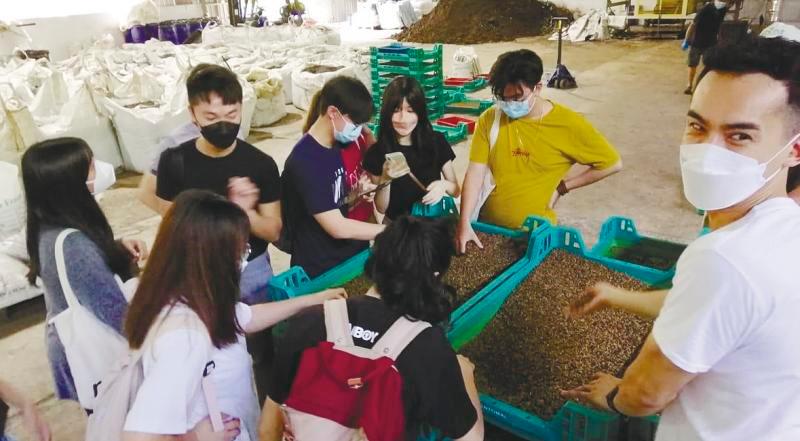UTAR Faculty of Science (FSc) academics Dr Lam Ming Quan and Dr Ee Kah Yaw analysed the incidence of organic waste in Malaysia, and considered the many ways in which the problem could be resolved.
“In one of our discussions, we decided to introduce a waste management-related project as our final year project for undergraduate students. Our students were taken on a field study to BioLoop Sdn Bhd, a new type of biotechnology company that cultivates insects as the next generation of sustainable food protein,” said Dr Lam and Dr Ee.
The two young owners of BioLoop, who had returned from studying abroad, had now settled in Teluk Intan, Perak, where they decided to build their business by investing in the future of biotechnology.
The big question “Was their focus on insects and their link to the management of waste, the foundation of a successful business enterprise?” said both Dr Lam and Dr Ee.
Yes, both agreed it was viable, given the nature of the Black Soldier Fly larvae, which had shown that organic waste could be converted to a protein, suitable for many uses.
“Black soldier fly larvae are a type of insect that consumes any organic waste. In describing the insects as the bearers of great ability is no exaggeration. They are the connoisseurs of organic waste, digesting the waste in their stomachs and then absorbing them as nutrients to be reconstructed as muscle. Such a process converts organic waste into a new generation of food protein, which could be utilised as raw material for food production or animal and fish feed after processing. The excretions by the larvae during their growth can be turned into fertiliser with the help of microorganisms to provide nutrients for crops, thus realising the concept of turning waste into gems once again. These processes mark the engagement of different fields of sciences as we strive for a zero-waste future,” they said.
“Listening to the young owners’ explanation on the cultivation process of larvae, coupled with the food sampling of roasted larvae by the students, caused us a great deal of excitement. These kinds of practical experiences are indeed not available in the classroom. They are extremely rare experiences, especially for students after the pandemic. The engaged students were from different departments of FSc, including students from Biotechnology, Food Science, Microbiology, Agricultural Science programmes.
“This visit made them realise the prospect of studying in their respective programmes, and at the same time made them think of their future careers. The students fulfilled their objectives during the visit, as they brought waste samples back from the company. They would subsequently conduct experiments on the waste samples and strive to explore new possibilities in turning waste into gems,” said Dr Lam and Dr Ee.
The final conclusion by both academics, Dr Lam and Dr Ee, was the importance of science should never be disregarded. A country’s prosperity is mainly dependent on the sustainable incomes derived from new inventions.
UTAR offers undergraduate and postgraduate programmes in areas including Accountancy, Actuarial Science, Applied Mathematics, Arts, Chinese Studies, Malaysia Studies, Business and Economics, Biotechnology, Engineering and Build Environment, Information and Communication Technology, Life and Physical Sciences, Medicine and Health Sciences, Media and Journalism, Education and General Studies, and Agriculture and Food Science. The university also engages in the provision and conduct of research, consultation, management and leadership training, and other related educational services at its Sungai Long and Kampar campuses in Malaysia.
For more information, please visit www.utar.edu.my or call 05-468 8888 (Kampar Campus), 03-9086 0288 (Sungai Long Campus).









